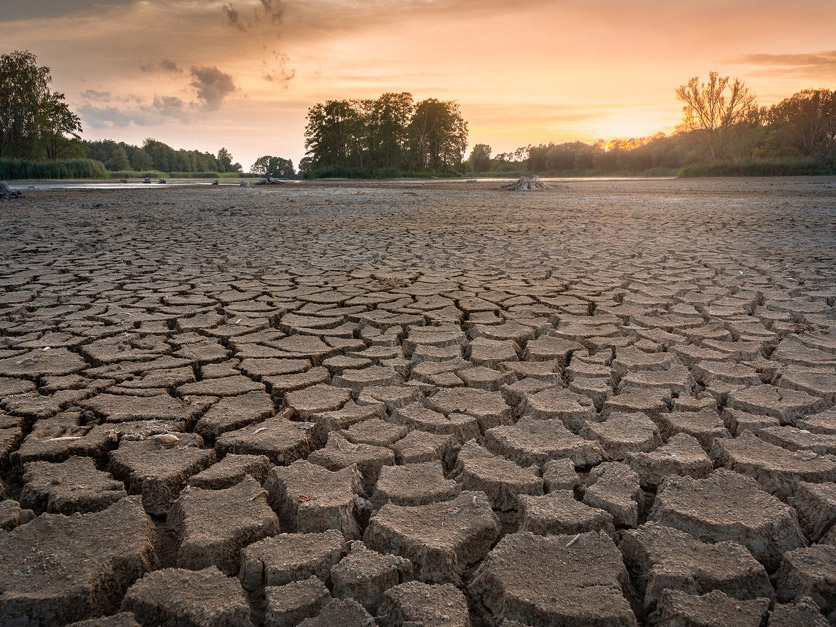In a recent survey, Californians identified water supply and drought as their top environmental concern, and the number of respondents who said they believe climate change is contributing to drought increased.
The Public Policy Institute of California conducted the survey of more than 1,500 residents statewide in July and in an open-ended question about the “most important environmental issue,” 25% of respondents mentioned drought or water supply, said Rachel Lawler, the PPIC survey analyst who oversaw the project. Additionally, 63% of all adults — and 67% of adults in the Central Valley — ranked water supply as a “big problem.” In 2015, another drought year, a record 70% ranked water supply and drought that way. Last year, 38% said it was a “big problem.”
The survey also asked whether people thought drought and wildfires were linked to climate change.
“Clearly they are,” said Craig Bleck, a professor at Imperial Valley College, who filled out the survey, adding that drought and wildfires are “two sides of the same coin.”
The survey found about 80% of people agreed the drought is linked to climate change, Lawler said, which “was a pretty big shift” since the question was asked in 2015. As for wildfires and climate change, she said this year’s survey found a significant change in Republicans’ responses. Last year, 27% said climate change contributed to wildfires while this year 44% said yes. Among Democrats and Independents, the figures also increased but by less than 10 percentage points.
“I was surprised to see how much of a change there has been, even just since last year, with Republicans,” Lawler said.
News reports of drought, and even seeing lower water levels in reservoirs and lakes, doesn’t necessarily correlate to changes in water use. Ray Padilla, who works for a bank in Antioch and also filled out the survey, has noticed that there’s not as much water but says despite some minor changes he hasn’t seen his community really tackle water conservation. An immigrant from the Philippines decades ago, he said when water was scarce there, faucets ran dry.
Interested in more coverage and insights? Receive a free month of Agri-Pulse West
“You would think that if they say drought, if you turn the faucet on it’s really dry.” Instead, he said he looks at the low water level in a reservoir near his house and is somewhat mystified as to how water still flows through the tap. “If you do shut off the water,” he said, with some form of rationing, people will be forced to face the severity of the situation.
Another alternative would be to charge more for water above a certain basic amount, Bleck said. “If you raise the price of water, people use less.”
He noted that the Imperial Valley is at the top of the list for Colorado River water rights, so farmers and others are doing better than the present conditions might suggest. But while he supports farming and recognizes its importance both historically and economically in the area, some of the crops are very thirsty. “We could shift to other things that require less water,” he said, but only if farmers have an incentive to do that.
Lawler said it’s common for issues that are in the news to get top billing in the survey, which aligns with this summer’s results. She and her team aim to gather information for leaders and lawmakers that will help them do their work, sometimes providing “source material for when they are crafting legislation.”
For more news go to www.Agri-Pulse.com.

